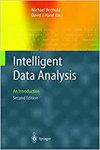A hybrid quantum-behaved particle swarm optimization solution to non-convex economic load dispatch with multiple fuel types and valve-point effects
IF 0.8
4区 计算机科学
Q4 COMPUTER SCIENCE, ARTIFICIAL INTELLIGENCE
引用次数: 0
Abstract
Economic dispatch problems (EDPs) can be reduced to non-convex constrained optimization problems, and most of the population-based algorithms are prone to have problems of premature and falling into local optimum when solving EDPs. Therefore, this paper proposes a hybrid quantum-behaved particle swarm optimization (HQPSO) algorithm to alleviate the above problems. In the HQPSO, the Solis and Wets local search method is used to enhance the local search ability of the QPSO so that the algorithm can find solutions that is close to optimal when the constraints are met, and two evolution operators are proposed and incorporated for the purpose of making a better balance between local search and global search abilities at the later search stage. The performance comparison is made among the HQPSO and the other ten population-based random search methods under two different experimental configurations and four different power systems in terms of solution quality, robustness, and convergence property. The experimental results show that the HQPSO improves the convergence properties of the QPSO and finally obtains the best total generation cost without violating any constraints. In addition, the HQPSO outperforms all the other algorithms on 7 cases of all 8 experimental cases in terms of global best position and mean position, which verifies the effectiveness of the algorithm.多燃料类型和阀点效应非凸经济负荷调度的混合量子粒子群优化解
经济调度问题可以归结为非凸约束优化问题,大多数基于种群的算法在求解经济调度问题时容易出现早熟和陷入局部最优的问题。因此,本文提出了一种混合量子行为粒子群优化算法来缓解上述问题。在HQPSO中,使用Solis和Wets局部搜索方法来增强QPSO的局部搜索能力,使算法在满足约束时能够找到接近最优的解,并提出并合并了两个进化算子,以在后期搜索阶段更好地平衡局部搜索和全局搜索能力。在两种不同的实验配置和四种不同的电力系统下,对HQPSO和其他十种基于群体的随机搜索方法在求解质量、鲁棒性和收敛性方面的性能进行了比较。实验结果表明,HQPSO改进了QPSO的收敛性,最终在不违反任何约束的情况下获得了最佳的总发电成本。此外,在所有8个实验案例中的7个案例中,HQPSO在全局最佳位置和平均位置方面优于所有其他算法,验证了算法的有效性。
本文章由计算机程序翻译,如有差异,请以英文原文为准。
求助全文
约1分钟内获得全文
求助全文
来源期刊

Intelligent Data Analysis
工程技术-计算机:人工智能
CiteScore
2.20
自引率
5.90%
发文量
85
审稿时长
3.3 months
期刊介绍:
Intelligent Data Analysis provides a forum for the examination of issues related to the research and applications of Artificial Intelligence techniques in data analysis across a variety of disciplines. These techniques include (but are not limited to): all areas of data visualization, data pre-processing (fusion, editing, transformation, filtering, sampling), data engineering, database mining techniques, tools and applications, use of domain knowledge in data analysis, big data applications, evolutionary algorithms, machine learning, neural nets, fuzzy logic, statistical pattern recognition, knowledge filtering, and post-processing. In particular, papers are preferred that discuss development of new AI related data analysis architectures, methodologies, and techniques and their applications to various domains.
 求助内容:
求助内容: 应助结果提醒方式:
应助结果提醒方式:


